Looking for Strangers
The True Story of My Hidden Wartime Childhood
Dori Katz
THE UNIVERSITY OF CHICAGO PRESS
Chicago & London
DORI KATZ is professor emeritus of modern languages and literature at Trinity College. She is the author of Hiding in Other Peoples Houses.
The University of Chicago Press, Chicago 60637
The University of Chicago Press, Ltd., London
2013 by The University of Chicago
All rights reserved. Published 2013.
Printed in the United States of America
22 21 20 19 18 17 16 15 14 13 1 2 3 4 5
ISBN-13: 978-0-226-05862-7 (cloth)
ISBN-13: 978-0-226-06333-1 (e-book)
DOI: 10.7208/chicago/9780226063331.001.0001
Library of Congress Cataloging-in-Publication Data
Katz, Dori, author.
Looking for strangers: the true story of my hidden wartime childhood / Dori Katz.
pages cm
ISBN 978-0-226-05862-7 (cloth: alkaline paper)ISBN 978-0-226-06333-1 (e-book) 1. Katz, Dori. 2. Hidden children (Holocaust)BelgiumBiography. 3. JewsBelgiumBiography. I. Title.
D804.48.K314 2013
940.5318092dc23
[B]
2013003400
 This paper meets the requirements of ANSI/NISO Z39.48-1992 (Permanence of Paper).
This paper meets the requirements of ANSI/NISO Z39.48-1992 (Permanence of Paper).
For my father, Moishe Chaim Katz, 19101945
For my mother, Goldie Dychtwald Katz, 19132003
Since you wont budge, I am the one who must go back after so many years to those deserted streets, find your house, knock on the door and ask to be taken in.
DORI KATZ, Hiding in Other Peoples Houses
CONTENTS
PREFACE
I was born in Antwerp in 1939, one year before the Germans occupied Belgium in World War II. My motherwho was originally from Jew, a small town in Polandcame to Belgium by herself, to be with her brother in 1934. My father had come a year earlier from Svalava, Czechoslovakia, with his family; he was one of seven siblings. My mother and father met in Antwerp and married in 1938.
Once the persecution of the Jews started, relatives, siblings, parents, and friends began to disappear. My father was arrested in September 1942 and deported to Auschwitz. Five months later I was placed in hiding with a Belgian Catholic family in Beersel, which is only seven miles from Brussels, but to me, at the age of three, it was a very distant world. My mother survived alone in Brussels with the help of counterfeit papers that gave her a new name, a Belgian identity, and a Christian religion. We were reunited in 1944 for a few months, but then, on January 16, 1945, my mother placed me in an orphanage in the town of La Hulpe, twelve miles from Brussels, for two years. In 1952 my mother and I left Brussels and settled in California.
The parts of this memoir relating to Poland in the 1930s and Belgium in the 1940s are based on the stories my mother told me, over and over, about her life. As we both grew older, I began to take notes whenever she would talk about those times, first out of curiosity, then thinking that someday I might write about them. Whenever I went to Israel to visit my uncle Benjamin, who survived Auschwitz, he would reminisce about his youth in Antwerp and his role in my parents courtship; his stories also informed those parts of the book. The chapter dealing with me as a hidden child at the age of three and a half is based on my own fragmented but sharp memories, which were corroborated forty years later by Jeanne Walschot, who was fourteen years old when I came to live with her family.
INTRODUCTION
I knew it was my mother when the telephone rang that morning, not only because she always called me around that time on Sundays, but also because I thought the ring sounded angry and reproachful.
So, youre really going to Belgium, she said, wasting no time for introductory niceties when I picked up the phone.
Hi, Mom, finethanks, and you? I answered, and then told her that I hadnt changed my mind. She repeated all the objections she had already voiced when I stated my intentions to search for the strangers who had hidden me during the war. She reminded me that it had been over forty years ago. You were a child then; for you, it was nothing, she told me. You cant possibly remember anything about that time; those people did it for money. What makes you think theyll be glad to see you? Besides, theyre probably dead by now.
I dont care, I replied. I want to find out. Im going.
Why are you doing this? she asked again.
It was hard to answer, since I couldnt even articulate to myself why the compelling need, decades after the war, to recover memories of my life between the ages of three and seven, the years of our separation.
What do you want to find out? Just ask me, she said. Do you know how difficult it was for me to give you up, how much I suffered, always worrying if you were safe? You were just a childyou didnt understand.
I told her that was not the point, that this was not a criticism of her as a mother. But we couldnt understand each other. I couldnt figure out why my projected trip was so painful to her, and she couldnt believe that I needed to reconnect with a past that excluded her.
As we talked, I pictured her in her housedress, sitting on her plastic-covered couch, the shades of the living room drawn against the midday California sun, her wig perched on the black vase on the dresser (she always took it off when she was alone). The table would be set, ready for the big meal she would serve at noon to her boyfriend when he came by to spend the day. She often called me when everything was prepared, the unmolded apple-lime Jell-O ring wiggling on the kitchen counter, the codfish steaks ready to go under the broiler, the soup simmering on the stove. She probably had her slippered feet up on the glass coffee table, waiting for him, leaving enough time to change housedresses, then put on a little makeup and her wig.
I didnt think she would tell him about our conversation; this was just between the two of us. Suddenly I wished I were there, sitting safely at the kitchen table with her, with no tension between us. We had lived on different coasts for decades now and only saw each other twice a year; these weekly telephone calls were like an umbilical cord still connecting us after all that time apart.
She didnt wish me a happy birthday, although I knew she hadnt forgotten. It was the first time that she hadnt sent me a gift or a card with money for the occasion. I always felt a little uncomfortable taking money from her at my age, especially since I knew that I earned so much more as a college professor than she did as a seamstress, but I saw these gifts as tokens of her love, and so I accepted the cash or the inevitable flannel pajamas gratefully.
Nor did she wish me a good trip but instead hung up as I tried once again to justify my need to go to Belgium: She and I had never talked about the unshared years of my childhood, maybe because they had been too painful for her. For me, they had not seemed important until lately. Perhaps because I was now in my mid-forties and knowing that I would never have a child, I wanted to retrieve the child I had been. Or perhaps I was like many people who have gone through a traumatic experience but do not speak of it until decades later.
I knew the facts: My mother and I had been separated during World War II and reunited for a few months when the Allies landed in Normandy; then we were separated again as the war continued and finally reunited for good sometime after the peace. I barely remembered those years, and my fragmented memories were like clouds constantly drifting, dissipating, and re-forming.
Who were the strangers who had taken me in? Were they still there in the same Belgian village? Why did they take such a risk? How could I thank them? Had they loved me, and had I loved them? What had I been like as a child? And then there was the mystery of my father: What had happened to him after his arrest in 1942? All my mother and I knew is that he had been deported to Auschwitz and never came back. My mother thought what had happened was clear enough, but I needed to know more; I wanted to find out about his life there and about his death. I had learned recently that there were war archives about Jews in Brussels in a government building; perhaps I would find answers there. In spite of my mothers disapproval, I was going to go to Belgiumalbeit with more trepidation than eagerness.
Next page

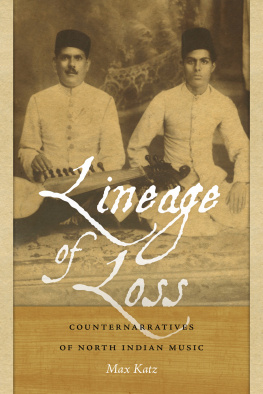
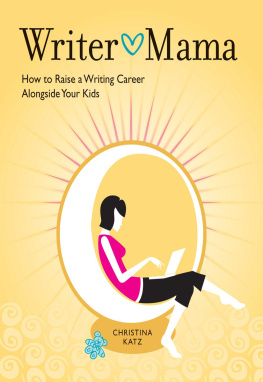
![Katz - Zombie Slayer Box Set, Vol. 1 [Books 1-3]](/uploads/posts/book/141697/thumbs/katz-zombie-slayer-box-set-vol-1-books-1-3.jpg)
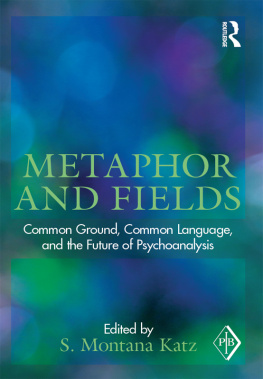
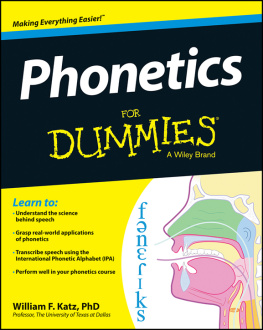
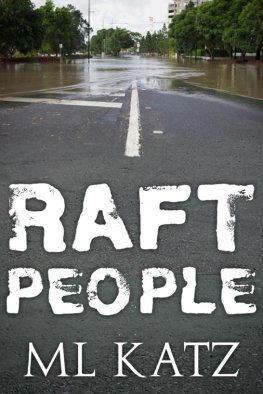
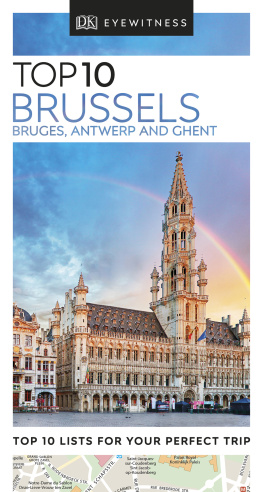
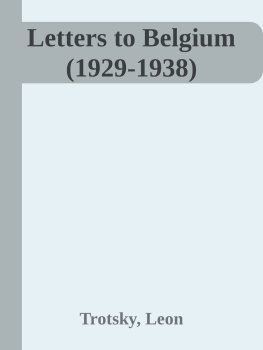
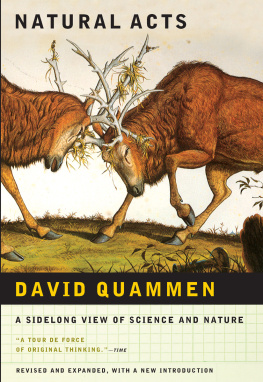

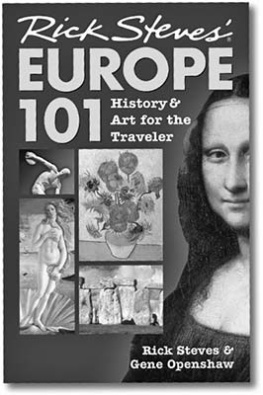

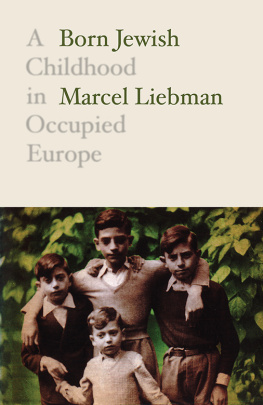
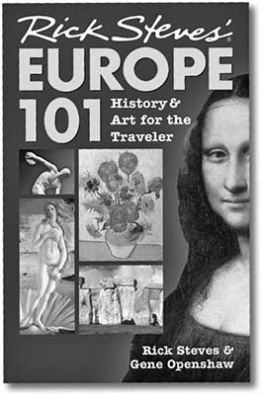
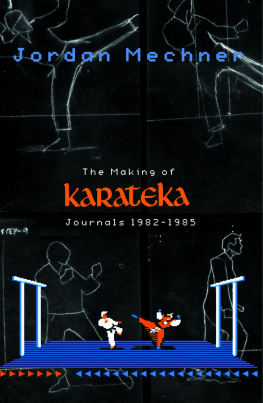
 This paper meets the requirements of ANSI/NISO Z39.48-1992 (Permanence of Paper).
This paper meets the requirements of ANSI/NISO Z39.48-1992 (Permanence of Paper).